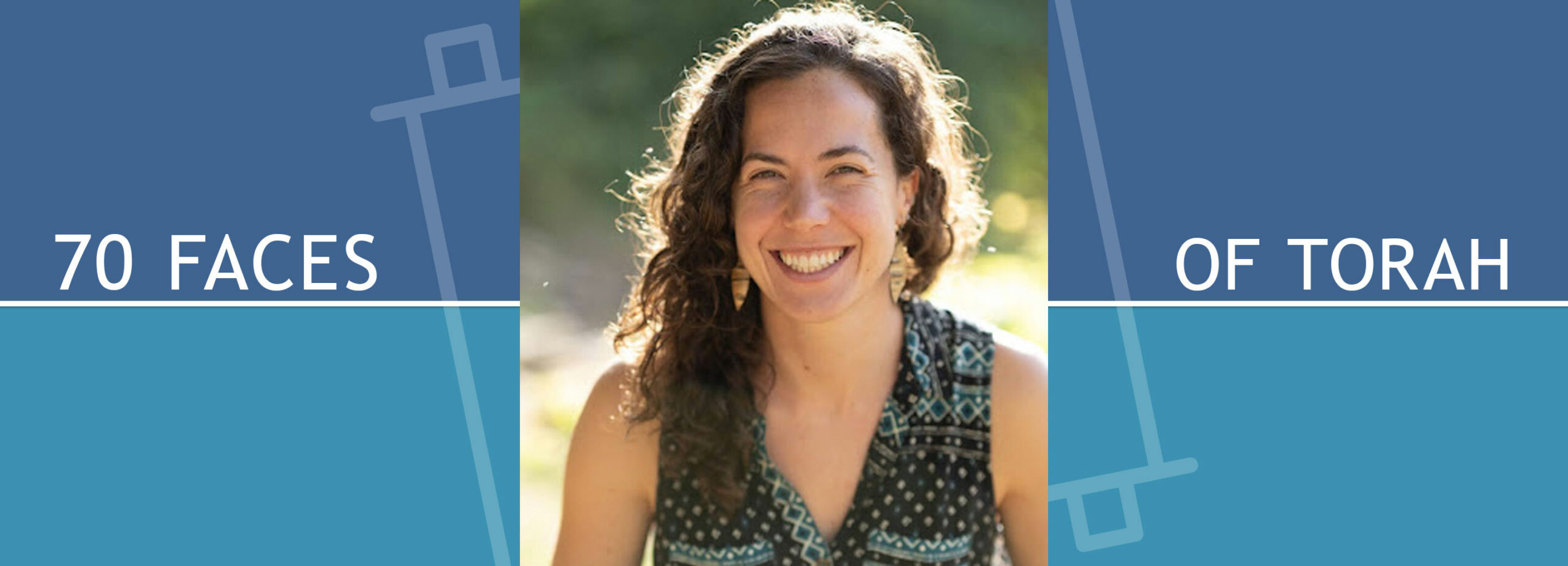Deuteronomy Harvesting Simcha

Parashat Ki Tavo Deuteronomy 26:1-29:8
Parashat Ki Tavo outlines more of Moses’ instructions to the people on how to build a just and lasting society in the Promised Land. It begins with a commandment to take all the first fruits the people will harvest in The Land, put them in a basket, and take them to the priests as offerings. When they make the offering, they are directed to recite a passage (which we still recite thousands of years later in the Passover seder) reminding them of their slavery in Egypt and subsequent freedom.
It is a ritual meant to remind the people where they came from and keep them from taking their new bounty for granted. The fruits of their labors are not, and were never, entirely theirs.
The verse directly following this commandment of the first fruits takes the mitzvah a step further. “And you shall be made joyous by all the good that Hashem your God has bestowed upon your household.” (26:11) It’s a prescriptive statement, a commandment. Be happy!
For some of us, this commandment is a delight. What a great religion, that these are our laws! For others, it may not feel so inviting. We might wonder: what happens if we just aren’t feeling it? How can we be commanded to feel something?
The parashah continues to a grand pronouncement of curses and blessings, a plea from Moshe to the people—choose to follow this path and you will be blessed, but turn away, and you will be cursed. It paints a picture of timely rains and abundance if we choose the path of blessing and loneliness and scarcity if we do not. It then tells us exactly what we have to have done to bring on the curses:
תַּחַת אֲשֶׁר לֹא־עָבַדְתָּ אֶת־יי אֱלֹהֶיךָ בְּשִׂמְחָה וּבְטוּב לֵבָב מֵרֹב כֹּל׃
“. . . Because you would not serve your God in joy and gladness over the abundance of everything.” (28:47)
If we don’t follow the commandment to be happy, we will find ourselves cursed. This just got serious.
What exactly is the Torah telling us to do?
When we’re told in our parashah that we will be made happy by the abundance that we will harvest, it’s in the command form—וְשָׂמַחְתָּ—and then the verse continues, “you and the Levite and the stranger in your midst.” (Deut 26:11) Ibn Ezra, a Spanish commentator from the Middle Ages, asserts that this addition of categories of people who don’t have their own land to harvest from, “means you are obligated to cheer them up [according one translation of this same word, simcha] with the fruit of your land.” We are obligated to cheer people up with fruit!
This simcha command appears in the second person singular, addressed to each of us as individuals. As it turns out, this form appears a small handful of other times in the Torah, all in Deuteronomy, and all closely followed by the commandment to not keep that happiness singular but to share it with others.
So simcha means something like, joy shared.
Just as we offer up our first fruits, recognizing that they were never ours alone to possess, so too with our joy. Our happiness was never meant to be for us alone. It was always meant to be shared. What we’re commanded here is to share in our joy, just as we share the first fruits.
Where does that leave us when we don’t have enough joy for ourselves, let alone to share?
I would like to offer that this is one of the reasons so much of Judaism is practiced in community. Just like Ibn Ezra says, when we have enough, we’re obligated to share it with others. That means that when we don’t have enough, others are obligated to share with us, and not by telling us to feel better, but by sharing their first fruits with us, by bringing us into their abundance.
On the morning of October 7, my partner Amir got called up to reserve duty in Israel, while I was starting my shana gimmel in Boston. I was only able to be in inconsistent communication with Amir during that time, and I was very scared and felt very alone in that fear. Yet, the most remarkable thing happened. My friends started bringing me food. I didn’t ask for it. I didn’t make a meal train. But somehow, this Jewish sensibility kicked in. My friend Jonathan ordered vegan tacos to my house. My housemate Danielle’s mom brought me soup. My friends Jon and Casara found me at synagogue on two different Saturdays and invited me to lunch. The list goes on. And, as anyone who has been through a big thing and has had people offer them tangible, direct sustenance and support knows, it made all the difference in the world.
That, I want to offer, is simcha. Simcha is sharing abundance when we have enough, and simcha is receiving abundance from others when we don’t. It’s a deep Jewish value, and one that I hope reflecting on can inspire us both to keep showing up for others and to let others show up for us.
Carrie Watkins is a fourth-year Hebrew College rabbinical student, organizer and teacher for Or HaLev: Jewish Spirituality and Meditation, and Rabbinic Apprentice with the Center for Small Town Jewish Life. Carrie has a certificate in Integrative Somatic Trauma Therapy and is in her second year of the Gates of Awareness: Jewish Meditation Teacher Training program. She loves adventures of all shapes and sizes and is an enthusiastic surfer and climber.
Meet students and faculty at one of our fall open houses, Ta Sh’ma (Come & Hear) November 18 (in-person) or online (Dec. 8). Learn more and register.


